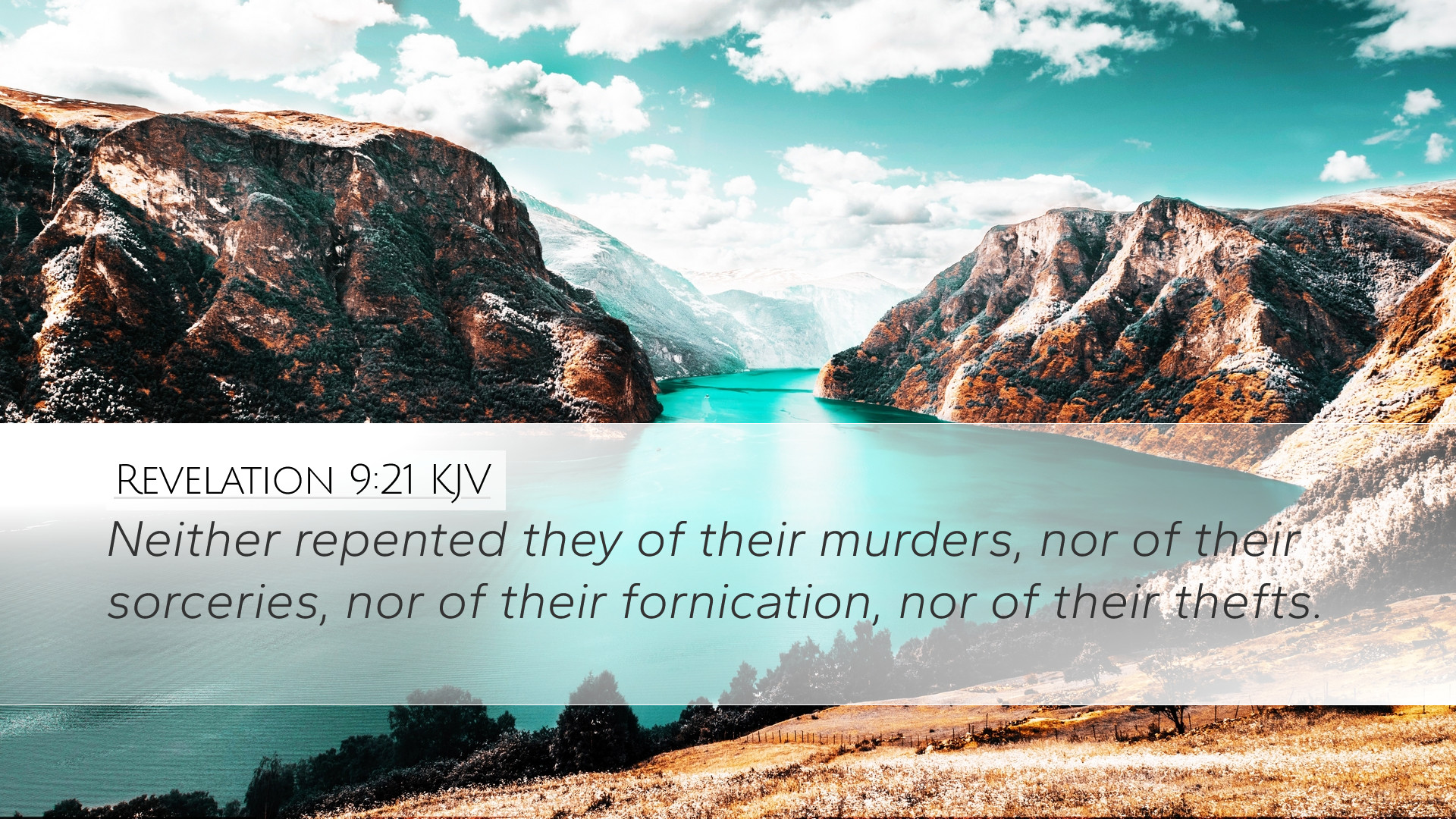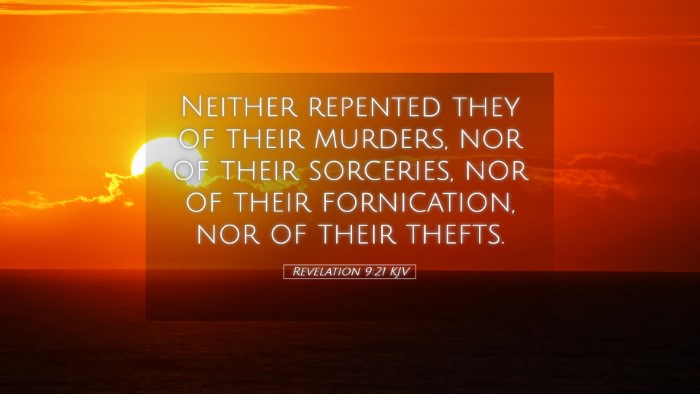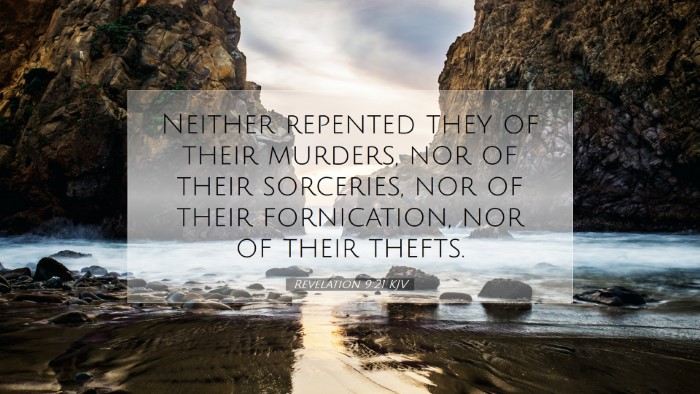Commentary on Revelation 9:21
Verse Reference: Revelation 9:21 - "And they repented not of their murders, nor of their sorceries, nor of their fornication, nor of their thefts."
Introduction
The verse Revelation 9:21 presents profound implications regarding human nature and the response to divine judgment. It reflects on the unrepentant state of humanity in light of catastrophic events. Different commentaries shed light on the significance of this verse and contribute to understanding its context within the apocalyptic literature of the New Testament.
Analysis by Matthew Henry
Matthew Henry emphasizes the persistent hardness of heart displayed by mankind. He notes:
- Unrepentance: Despite the numerous calamities occurring, the people still choose to reject repentance. This demonstrates the depth of human depravity.
- Sins Enumerated: Henry elucidates the specific sins mentioned: murders, sorceries, fornication, and thefts are indicative of a society steeped in immorality. Each sin points to a break in the created order and serves as a violation against God and neighbor.
Henry concludes that the refusal to turn toward God after experiencing His judgments highlights a critical aspect of free will; people consciously choose to follow sinful paths rather than seeking divine mercy.
Insights from Albert Barnes
Albert Barnes provides a detailed analysis of the implications behind the refusal to repent. He states:
- Context of Judgment: The context of Revelation highlights God's attempts to draw humanity to repentance through His judgments, which are often misinterpreted as mere punishments.
- Nature of Sorceries: Barnes interprets "sorceries" (Greek: φάρμακον - pharmakon) not only in the occult sense but also in relation to the use of substances. He views this as a comment on how people seek escape or relief through illicit means rather than divine intervention.
- Stubbornness of the Heart: Barnes points out the stubbornness of the heart that persists in rebellion against God’s authority, signifying both a moral and spiritual failing of society.
In Barnes’ view, the societal implications of these sins reflect ongoing threats to the spiritual integrity of the church and the individual believer.
Reflections from Adam Clarke
Adam Clarke offers a critical theological perspective, focusing on the ramifications of the unrepentant state described in the verse:
- Wickedness of Man: Clarke asserts that the passage underscores the sinful inclinations of the human heart and the refusal to acknowledge God amidst judgment.
- Divine Patience: He amplifies the idea of God's patience and mercy contrasted with humanity's obstinacy, indicating a critical moment in the apocalypse where divine patience is tested.
- Consequences of Sin: Clarke reminds readers that these actions have serious consequences as they not only lead to physical death but spiritual separation from God.
Through Clarke’s insights, we see the theological implications surrounding the idea of sin and the urgent call for repentance amidst dire circumstances.
Theological Implications
This verse serves as a sobering reminder for contemporary readers and scholars alike about the nature of sin and God’s call for repentance. The unyielding nature of sin in the face of divine judgment illustrates key theological concerns:
- Human Responsibility: Individuals bear the responsibility to respond to God’s revelations and interventions in their lives, particularly in times of crisis.
- The Nature of True Repentance: A distinction must be made between superficial sorrow for consequences and true repentance which seeks to turn from sin and towards God.
- Forgiveness and Redemption: The promise of forgiveness remains for those who genuinely repent, contrasting the consequences faced by those who persist in sin.
Conclusion
Revelation 9:21 calls for deep reflection on human sinfulness and the divine desire for repentance. The insights of Matthew Henry, Albert Barnes, and Adam Clarke together create a composite picture of the challenges faced by humanity in recognizing the sovereignty of God amidst troubling times. For pastors, students, theologians, and scholars, this verse encourages continual dialogue about the nature of human sin, the importance of repentance, and the grace extended through Christ.


